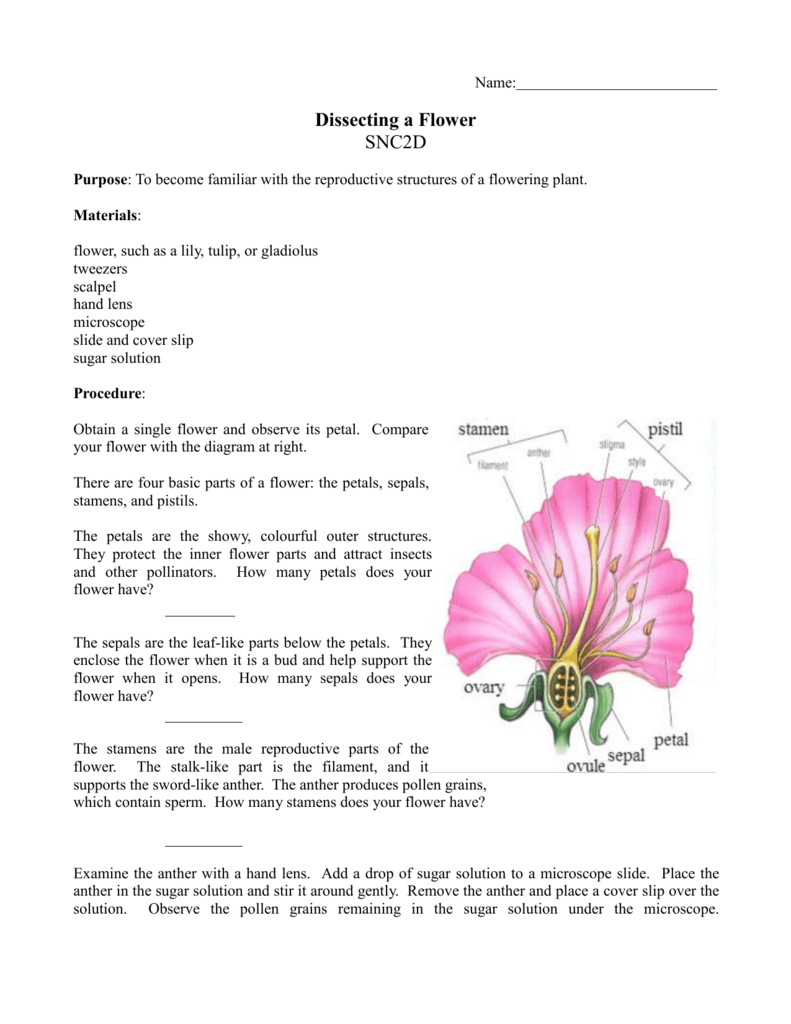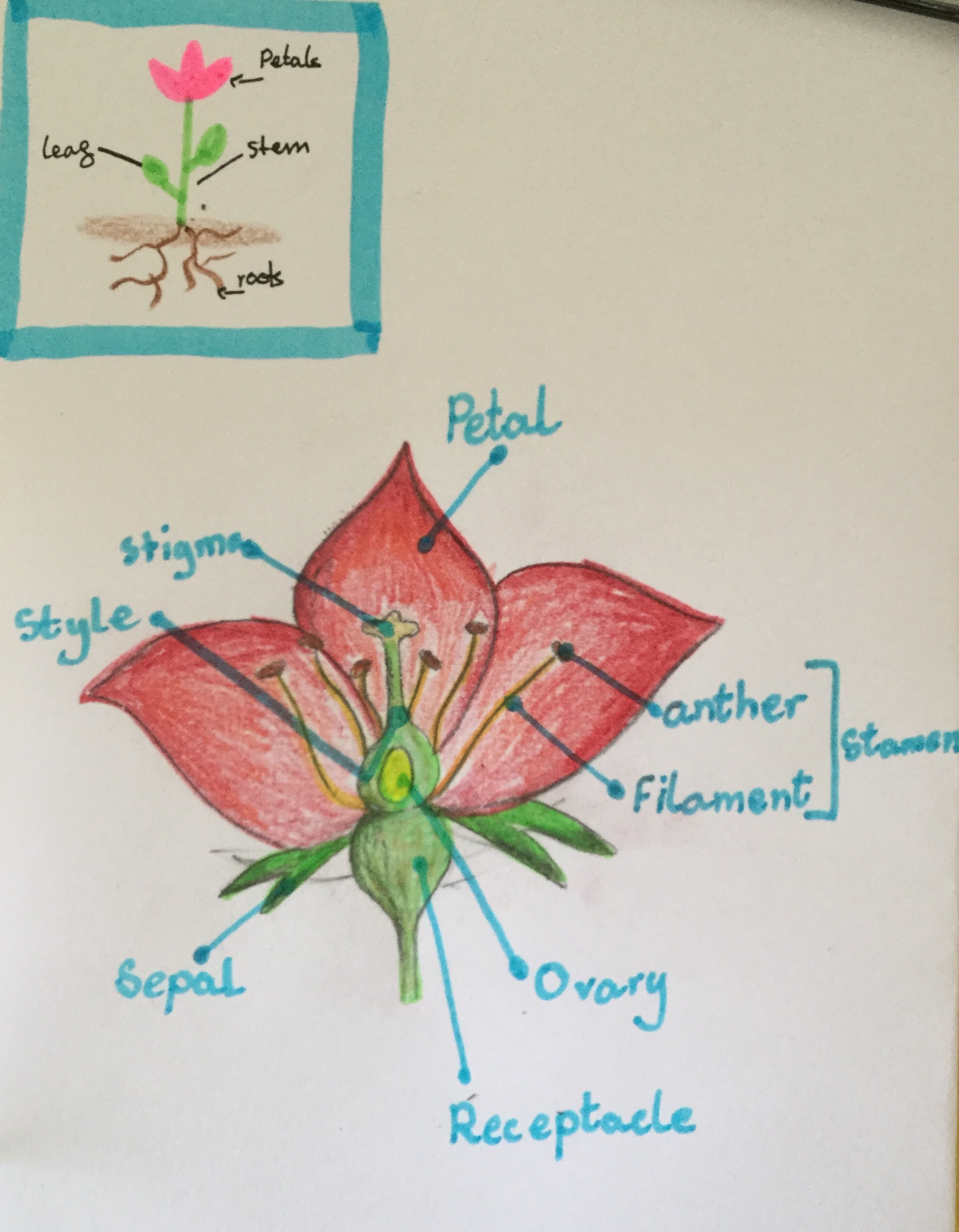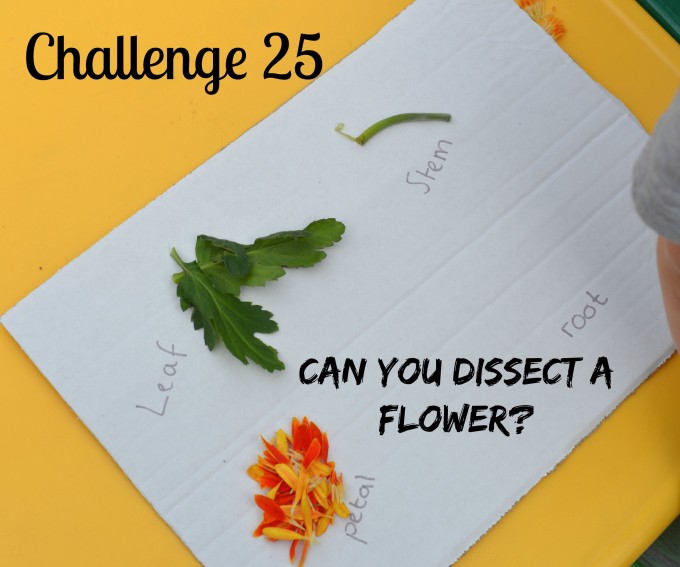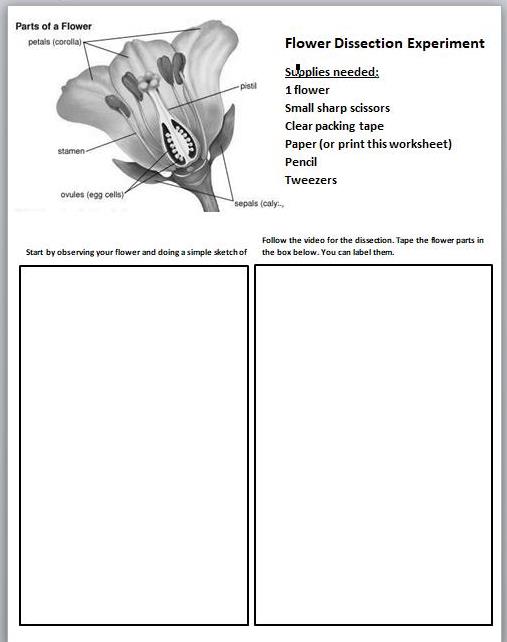Dissect Flower Worksheet
Dissect Flower Worksheet - What do you see inside, what do you think it all does. In addition, directions for the classic activity where students. Web dissecting trays (optional) a variety of cut flowers with easily distinguished male and female parts (you will want at least three different types of flowers for your students to. Works well with lilies, but can be used with any flower. Web this resource is a whole lesson, consisting of a worksheet and accompanying powerpoint presentation. In addition, directions for the classic activity. Web parts of the flower labeling and virtual dissection student activitythis *no prep* digital flower dissection includes drag and drop flower parts so it is ready to be. •dissect flowers to look at their parts. Web in this science worksheet, students learn the basic anatomy of a flower and how a flower reproduces by completing this flower dissection activity. Learn about the parts of a flower, with this flower dissection worksheet. •dissect flowers to look at their parts. Learn about the parts of a flower, with this flower dissection worksheet. Works well with lilies, but can be used with any flower. What do you see inside, what do you think it all does. In addition, directions for the classic activity. How many petals are there? Web dissect a flower to explore the form and function of plant reproductive structures. Web this resource is a whole lesson, consisting of a worksheet and accompanying powerpoint presentation. This lab reinforces the vocabulary of the flower. In addition, directions for the classic activity where students. Web dissect a flower to explore the form and function of plant reproductive structures. Web zip, 8.89 mb. •dissect flowers to look at their parts. Students will describe each object, what part of the plant it is, and identify if it comes from 1) an angiosperm or a gymnosperm, 2) a vascular or nonvascular plant, 3). Web dissecting trays (optional). Web zip, 8.89 mb. Tools and materials flower (a relatively large, simple flower like a lily, alstroemeria, or. If you don’t have a microscope, use your magnifying glass to examine the petal. Web dissecting trays (optional) a variety of cut flowers with easily distinguished male and female parts (you will want at least three different types of flowers for your. Tools and materials flower (a relatively large, simple flower like a lily, alstroemeria, or. Web this resource is a whole lesson, consisting of a worksheet and accompanying powerpoint presentation. Web zip, 8.89 mb. In addition, directions for the classic activity. Web guided practical sheet for flower dissection. Web students will get the chance to dissect a flower, sort and count the parts, and answer comprehension questions about their findings in their science journal or on the provided. Learn about the parts of a flower, with this flower dissection worksheet. Students will describe each object, what part of the plant it is, and identify if it comes from. How many petals are there? Look at your flower to see how it's all formed. •dissect flowers to look at their parts. There are 8 tasks designed to help pupils. They have both male and female flowers. How are the leaves shaped? Web students will get the chance to dissect a flower, sort and count the parts, and answer comprehension questions about their findings in their science journal or on the provided. How many petals are there? They have both male and female flowers. Pull off the leaves from the stem, and explore. This lab reinforces the vocabulary of the flower. Web guided practical sheet for flower dissection. Web parts of the flower labeling and virtual dissection student activitythis *no prep* digital flower dissection includes drag and drop flower parts so it is ready to be. Before beginning the lab, show students the flower dissection video and discuss the safety procedures that should. If you don’t have a microscope, use your magnifying glass to examine the petal. This lab reinforces the vocabulary of the flower. •dissect flowers to look at their parts. Web in this science worksheet, students learn the basic anatomy of a flower and how a flower reproduces by completing this flower dissection activity. How are the leaves shaped? If you have a microscope, look at the tip of the petal on a low magnification. In addition, directions for the classic activity where students. This lab reinforces the vocabulary of the flower. There are 8 tasks designed to help pupils. The first step in this dissection is to remove the sepals and petals, by pulling them down toward the stem. Web guided practical sheet for flower dissection. What do you see inside, what do you think it all does. Look at your flower to see how it's all formed. Tools and materials flower (a relatively large, simple flower like a lily, alstroemeria, or. Web this resource is a whole lesson, consisting of a worksheet and accompanying powerpoint presentation. Pull off the leaves from the stem, and explore. Web students will get the chance to dissect a flower, sort and count the parts, and answer comprehension questions about their findings in their science journal or on the provided. In addition, directions for the classic activity. You know, poke to learn! Web dissecting trays (optional) a variety of cut flowers with easily distinguished male and female parts (you will want at least three different types of flowers for your students to. Students will describe each object, what part of the plant it is, and identify if it comes from 1) an angiosperm or a gymnosperm, 2) a vascular or nonvascular plant, 3). Web parts of the flower labeling and virtual dissection student activitythis *no prep* digital flower dissection includes drag and drop flower parts so it is ready to be. Works well with lilies, but can be used with any flower. How many petals are there? Learn about the parts of a flower, with this flower dissection worksheet. In addition, directions for the classic activity. If you don’t have a microscope, use your magnifying glass to examine the petal. What do you see inside, what do you think it all does. Web parts of the flower labeling and virtual dissection student activitythis *no prep* digital flower dissection includes drag and drop flower parts so it is ready to be. Students will describe each object, what part of the plant it is, and identify if it comes from 1) an angiosperm or a gymnosperm, 2) a vascular or nonvascular plant, 3). Look at your flower to see how it's all formed. Web most flowers are perfect: How are the leaves shaped? The first step in this dissection is to remove the sepals and petals, by pulling them down toward the stem. You know, poke to learn! Before beginning the lab, show students the flower dissection video and discuss the safety procedures that should be followed when using a scalpel, proper lab. They have both male and female flowers. Web this resource is a whole lesson, consisting of a worksheet and accompanying powerpoint presentation. Pull off the leaves from the stem, and explore. Web dissect a flower to explore the form and function of plant reproductive structures. Works well with lilies, but can be used with any flower.Flower Dissection Lab Activity Worksheet Answers Best Flower Site
Investigating a Plant Flower Dissection Activity for Kids Royal
Flower Dissection Worksheet WonderFilled Days
The Teacher Garden Plant Dissection Plant dissection, Plant science
Flower Dissection Teaching science, Plant science, Homeschool science
Home Learning Flower Dissection Eleanor Palmer Primary School
Flower Dissection Year 7 St Christopher School Letchworth
Great experiments for learning about plants
SciTech Science Series Flower Dissections SciTech Discovery Center
Pin on Classroom ideas
Learn About The Parts Of A Flower, With This Flower Dissection Worksheet.
There Are 8 Tasks Designed To Help Pupils.
If You Have A Microscope, Look At The Tip Of The Petal On A Low Magnification.
Tools And Materials Flower (A Relatively Large, Simple Flower Like A Lily, Alstroemeria, Or.
Related Post:










